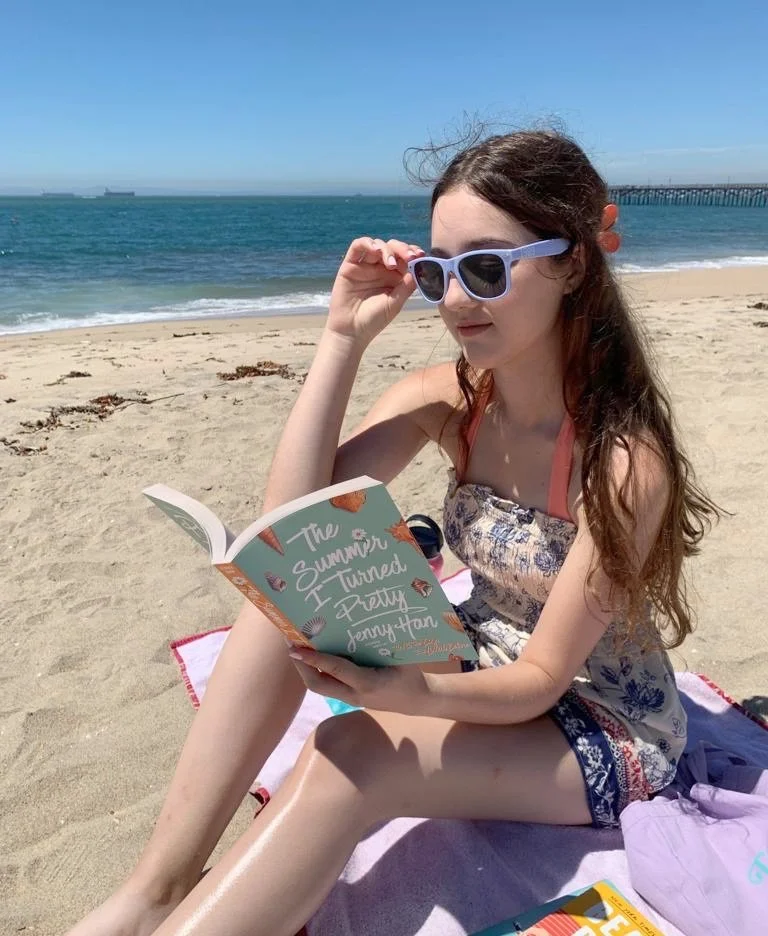The Best and Worst Parts of Ourselves: How “The Summer I Turned Pretty” Flips The Script
Every Wednesday night for the past 10 weeks I haven’t been home—I’ve been at Cousins Beach. I love that The Summer I Turned Pretty has brought together hopeless romantics, swifties, and a number of people in their 20s who find escape in the love triangle drama. Some see themselves in the yearning, heartache, and passionate pull between Belly and Conrad (sorry if you’re Team Jeremiah!). Some would rather not see themselves in any of the characters, but I digress.
If you’re anything like me, you read the trilogy years ago. I first read them when season 1 started, and I fell in love with the coastal New England town, teenagers living lives far more dramatic and entertaining than mine, and the romance that ultimately leads to Belly and Conrad finding their way back to each other. “We are infinite. Me and Conrad. The first boy I ever slow danced with, ever cried over. Ever loved,” writes Jenny Han in the final few pages of the series.
As I watched the beginning of season 3, I was confused. Everyone hated Conrad, including Belly. Everyone made him out to be the villain for loving her while she was going to marry his brother. I kept thinking to myself, “Did I miss something? Didn’t Conrad date her first?”
Toward the end of the season, I had a realization. Conrad “ruins everything” because he’s not portraying the typical male lead. Jenny Han flips the script, making Belly a frivolous dater who receives much less criticism from any of the other characters for her romantic choices, while Conrad is the one they all wish would move on. Maybe the reason so many of us, particularly women, love this show and root for Team Conrad is because we resonate with him. The misogyny women have experienced gets turned around and we’re confused because men aren’t typically the recipients of so much backlash in romantic situations, it’s the women. In a world where women often feel like it’s always their fault, Han creates a world where we see what it’s like when it’s not. If Conrad represents the unmerited treatment women frequently receive, then Belly represents the actions that are often dismissed when men commit them. By flipping the script, Han forces us to see the double standard that often exists for women in dating.
But there’s something else I noticed in the final episode that was convicting. Maybe the reason I didn’t like Belly before is because she’s also a mirror, not of the best parts I could be, but of the worst. It struck me after Conrad professed his love for her (again) at 4 am in her Parisian apartment. “How is she treating him this way?!” I wanted to scream at the TV. “After all he’s done for her, how can she not want him? How can she hurt him like that?” Everything she’s felt and done this season with Conrad was a clear indication of her feelings—the peach scene, shopping for wedding decor at Michaels, tending to his wound, etc—and yet she treated him like he had just used her.
Belly’s motivation for self-sabotage becomes crystal clear after Conrad leaves, and her mom sends her a childhood photo on her 22nd birthday. “All this time I wanted to believe I changed. That I’m not the same girl I was. But I am still her, and was that girl so bad? She followed her heart no matter what and despite all her mistakes, I have to believe she’s still worthy of love.” Isn’t that what growing up is like? Trying to strike the balance between maturity and staying true to what your younger self dreams of, because deep down you still have some of the same dreams. Growing without losing yourself. Letting go of the things that cause harm and holding onto the things that make you better. Belly didn’t know whether Conrad was good or bad for her, which seems strange from an audience perspective that sees the way he looks at her, but how was she supposed to accept the love so readily available when she couldn’t provide it to herself? She couldn’t recognize it until it was lost.
We have to love all of ourselves—the best and the worst—in order to outwardly give and receive love in return. As buttery clouds morph into crisp autumn air, Belly and Conrad’s love story was for me a culminating end to a summer of uncertainty, delight, adventure, and stillness. Even when it feels lost, love always finds its way back where it belongs.
